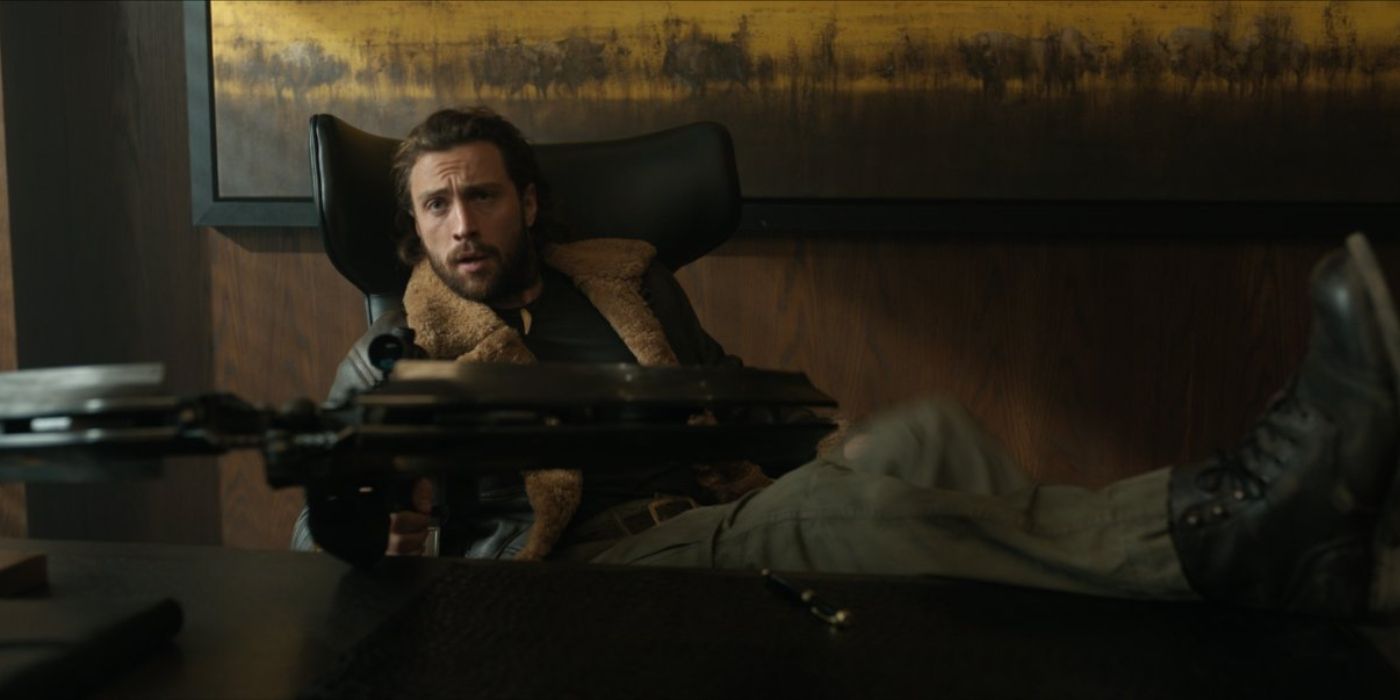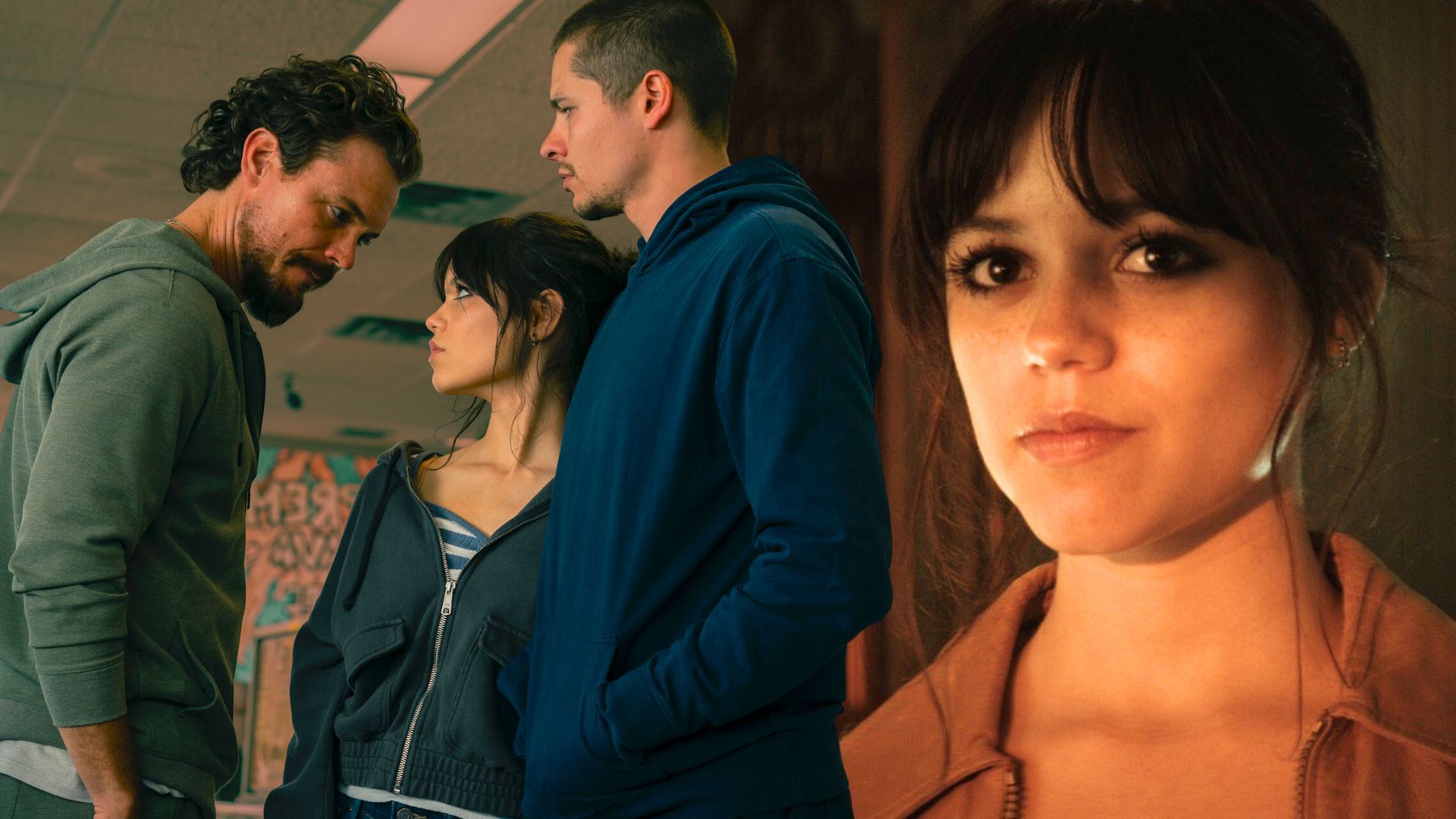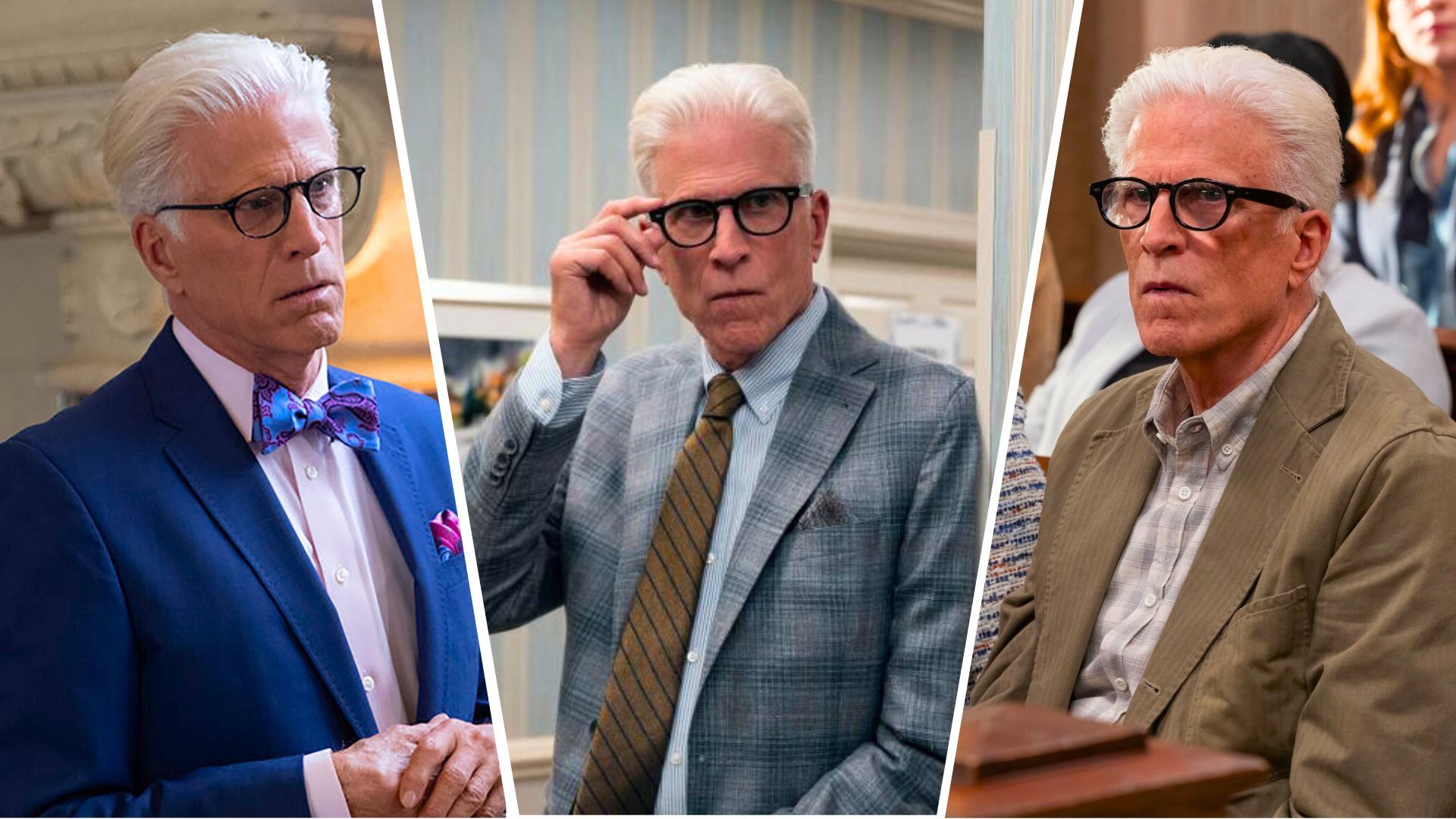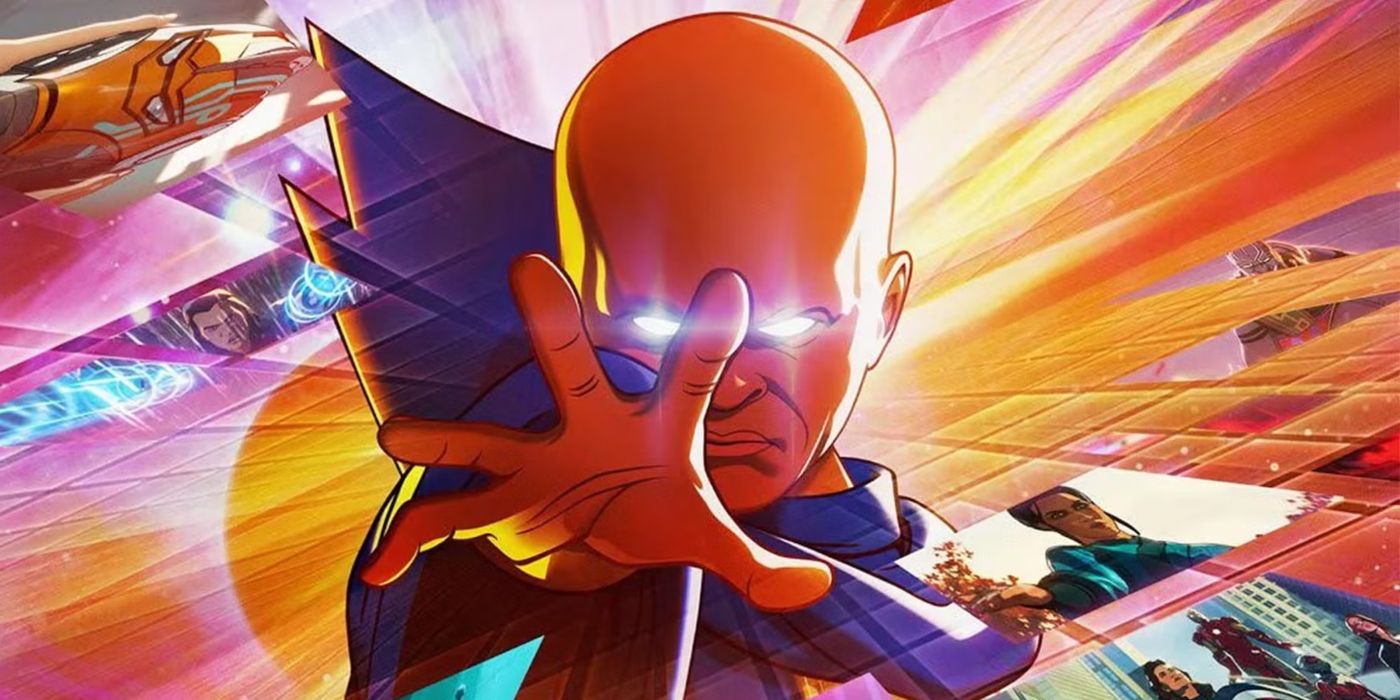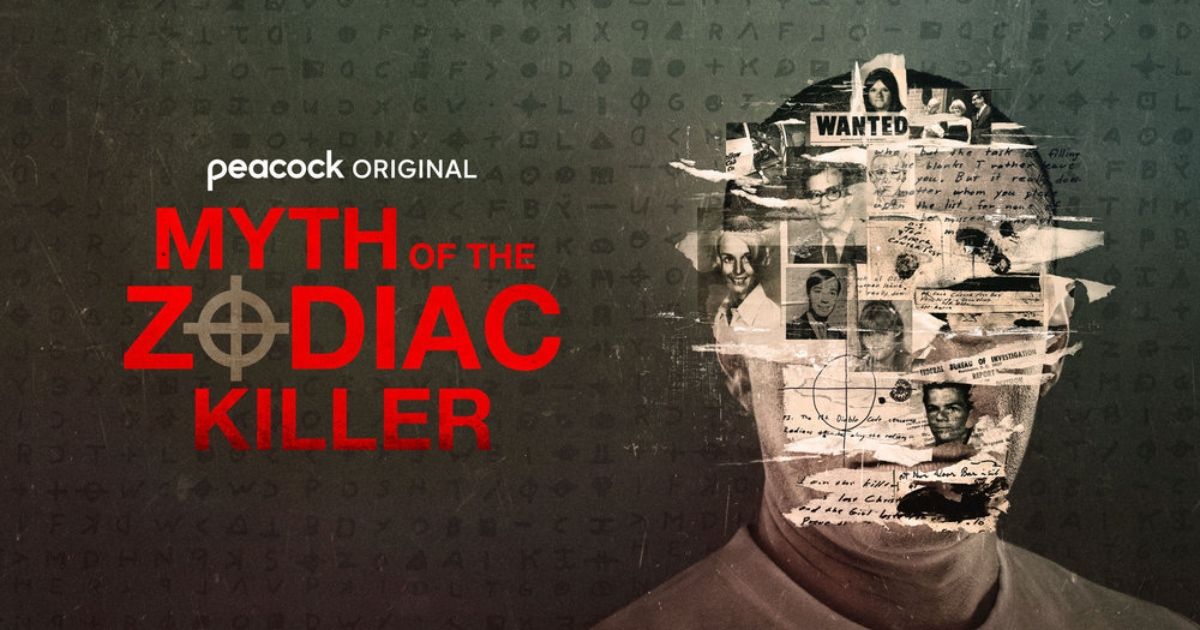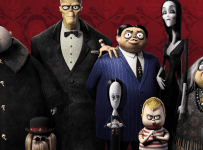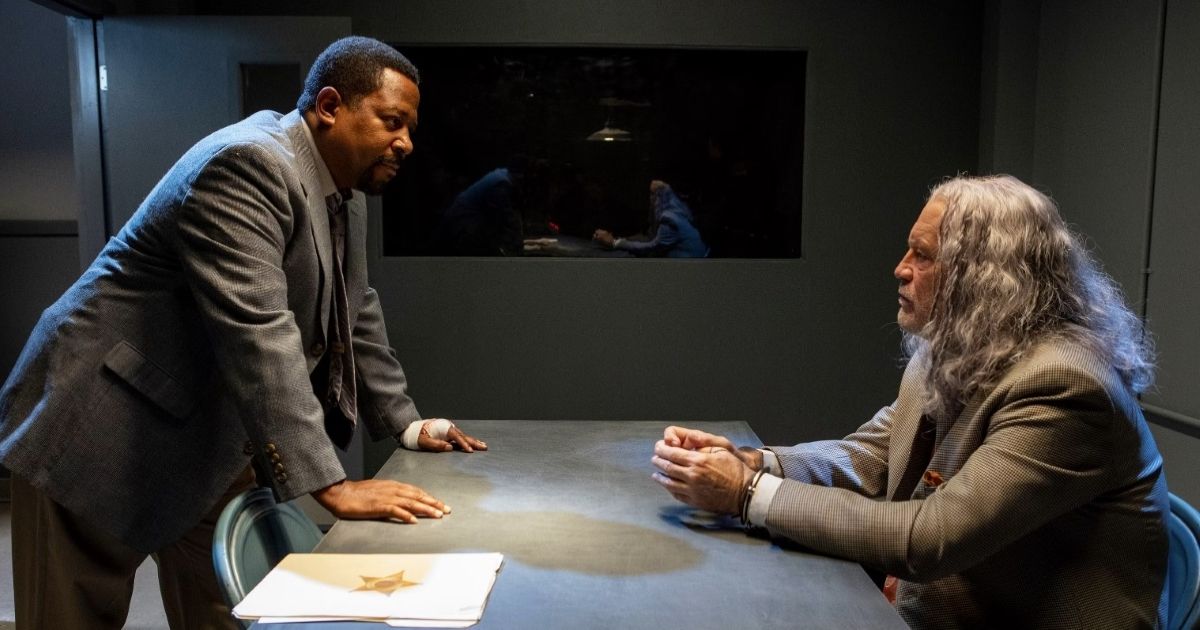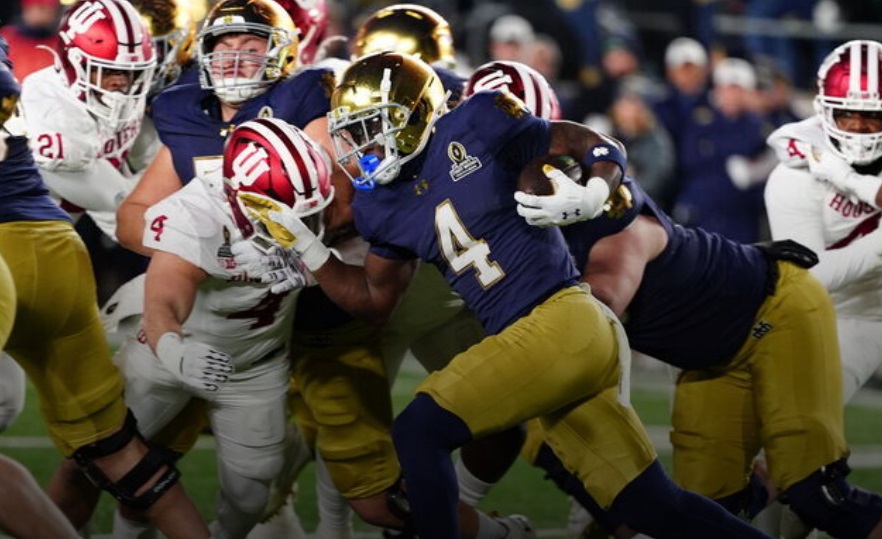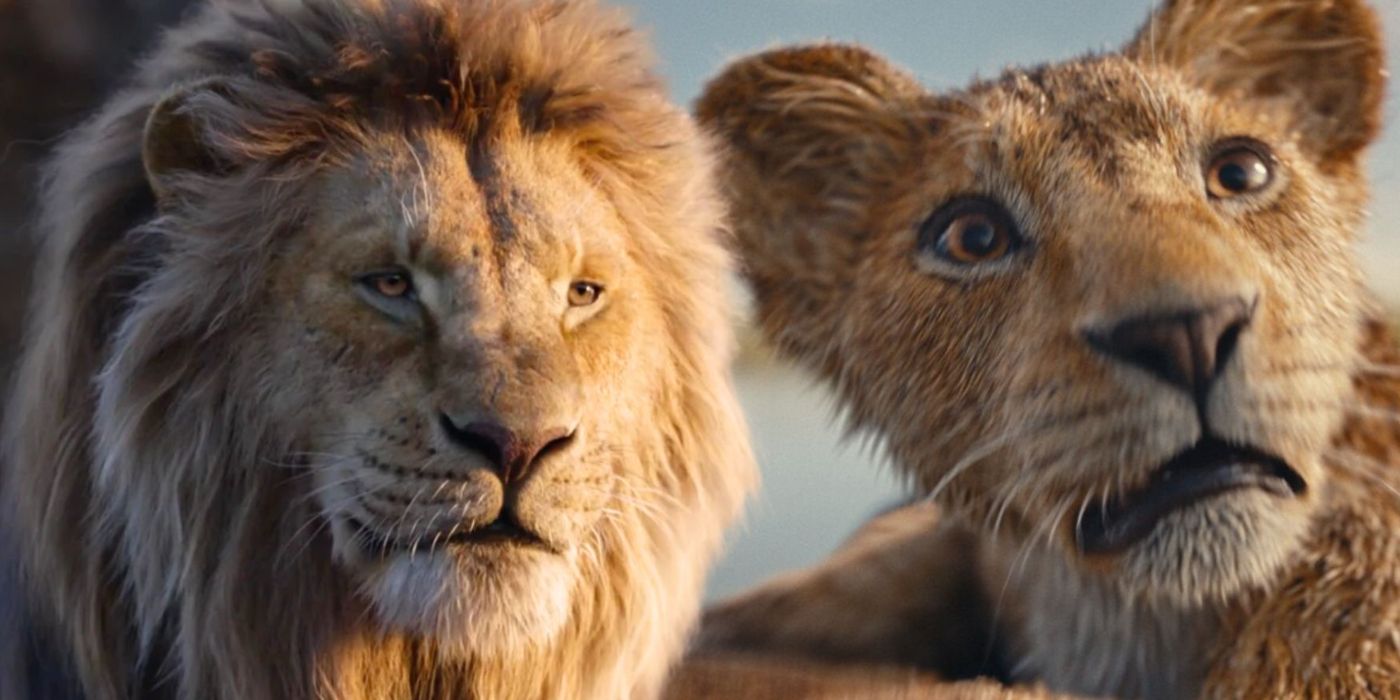By now, just about everyone has heard of the Zodiac Killer, the serial murderer that stalked necking teens in Northern California during the 1960s. Anyone with even a passing interest in true crime — or folks familiar with David Fincher’s 2007 film Zodiac — will recognize the artist’s sketches of the perpetrator, the cryptogram letters sent to police, the weird costume worn by the killer, and the iconic crosshair emblem associated with the case. Over the years, law enforcement, amateur sleuths and countless documentaries have proposed various suspects as to the identity of the still-at-large killer.
Myth of the Zodiac Killer, the new Peacock documentary debuting on July 11, posits a new theory: the Zodiac never existed at all. The hypothesis is the brainchild of English professor Thomas Horan, an amateur detective, linguistics expert and fan of floral shirts. (He never appears in anything else in the series.) Over the course of two hours, Horan, along with director Andrew Nock, details his theory as to how several unrelated murders became linked in the public imagination courtesy of a hoaxer with a penchant for cryptograms.
If nothing else, the documentary does get one thing right: the Zodiac Killer has become something of an American myth. From 1968 until 1974, the Zodiac murdered at least five people and tormented police with a series of coded letters that, he hinted, would disclose his identity. When communications with the killer stopped, the case passed into legend.
Crime TV series such as Unsolved Mysteries kept interest in the murders alive for almost 30 years, until the internet, with its countless sites devoted to the case attracting would-be detectives bent on cracking the mystery. Now there’s this.
Red Herring?
Peacock
Now Horan claims there isn’t really a mystery at all. The show’s first episode finds Horan and Nock revisiting several key sites in the Zodiac case. The first official Zodiac murders, that of teens David Faraday and Betty Lou Jensen, Horan contends, were committed by a ring of drug runners that targeted Faraday for calling out drug dealers in his high school. Horan further proposes that the second Zodiac murder, that of Darlene Ferrin, was actually a crime of passion, committed by her ex-husband.
Some of the best scenes in episode one of the series come as director Nock interviews Jim Crabtree, Ferrin’s ex-husband, whom Horan has fingered for the murder. These moments play less like a Silence of the Lambs-type confrontation with a killer than as a farce: Crabtree has a big personality that injects some levity into the proceedings. Viewers may find him repulsive, funny, or both, but his scenes are never boring.
Investigators interviewed for Peacock’s docuseries stress that police ruled Crabtree out as a killer during the initial investigation, and what Nock presents here only seems to reinforce their judgment. The same goes for the death of Faraday and Jensen at the hands of alleged drug runners: police considered the possibility before ruling it out. A subsequent phone call to police from the purported killer wherein he claimed responsibility for both shootings also suggests that Horan may think he’s ahead of detectives, when he’s actually behind.
Related: David Fincher Offers His Side Of Infamous Zodiac Feud With Jake Gyllenhaal
Horan’s theories may not have merit, but that doesn’t mean that Myth of the Zodiac Killer doesn’t have any. Nock interviews several friends and family members of victims here, which humanizes them in a whole new way. Watching them reminisce over their young friends more than 50 years after the fact has a certain poignancy to it. The second episode also teases how AI could crack two undecipherable Zodiac cryptograms, which also adds some intrigue.
The Real Mystery
Peacock
That said, die-hard Zodiac fans won’t find much new here. In fact, they’re likely to find Myth of the Zodiac preposterous. Though Nock appears on-screen a fair amount of the series’ runtime, he never makes it entirely clear what he thinks of Horan, or his Zodiac-as-myth hypothesis. That feels like something of a missed opportunity.
The FX docuseries The Most Dangerous Animal of All chronicled a similar fringe theorist—that of Gary Stewart, who became convinced his biological father was actually the killer. While the show teased Stewart’s claim as plausible, as the contradictions mounted, it became clear that the real story was one of a man who felt abandoned at birth. His belief bore out of a need for validation, not facts. Nock could have used a similar approach here, making the series more about Thomas Horan’s psyche to much greater effect.
Related: Best True Crime Documentary Movies Ever Made, Ranked
For that matter, Nock could have used Horan as a proxy for all the self-styled Zodiac investigators now thriving on the internet. What does it really say about someone who obsesses over an unsolved murder, devoting hours upon hours to message boards, podcasts and the like in hopes of solving it? What kind of hubris so infects the mind of self-styled “experts” in the cases of the Zodiac, JonBenet Ramsey, The Black Dahlia, Jack the Ripper, Robert Wone and the like that these people think they can, or in some cases, have solved a crime without access to police evidence files? No doubt that documentary would offer provocative theories too…probably more compelling than Horan’s postulation.
Difficult Material
Peacock
Nock approaches Myth of the Zodiac Killer with technical polish and empathy, and die-hard fans of true crime will likely gobble up the show. Whether it satisfies their appetites will vary from viewer to viewer. In a sense, no film about the Zodiac Killer can ever really feel satisfying because the story has no closure. Even Fincher’s Zodiac, for all its cult popularity and critical love, focused on a suspect who had already been exonerated by DNA evidence. It wasn’t a genuine mystery, just an empty mystery box.
Myth of the Zodiac Killer suffers from some of the same issues simply because of the nature of the case. Neither Fincher’s film nor Nock’s series devote enough emphasis to the real problem here: investigative mistakes tha allowed a killer to elude capture.
Thomas Horan may believe he’s solved the mystery of the Zodiac Killer, but audiences will probably feel otherwise. The biggest mystery here is why amateur detectives form so-called online “communities” think they can solve age-old cases without the benefit of acces to training or actual evidence files. When did audiences go from enjoying the adventures of Sherlock Holmes to actually trying to be Holmes?
Myth of the Zodiac Killer will be streaming on Peacock beginning July 11. You can watch the trailer below.
You can view the original article HERE.

